Plenary Keynote Presentations & Sessions
MONDAY, FEBRUARY 21
4:15 pm Chairperson's Remarks
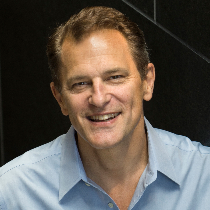 Robert C. Green, MD, MPH, Professor and Director of G2P Program, Mass General Brigham, Broad Institute, Ariadne Labs and Harvard Medical School
Robert C. Green, MD, MPH, Professor and Director of G2P Program, Mass General Brigham, Broad Institute, Ariadne Labs and Harvard Medical School
4:20 Keynote Introduction: Predicting Clinical Outcomes in Three Easy Steps
 Stephen Williams, MD, PhD, CMO, SomaLogic
Stephen Williams, MD, PhD, CMO, SomaLogic
Reliable outcomes prediction enables increased power in clinical trials and improved allocation of resources in clinical practice. The new discipline of using highly multiplexed measurements, machine learning and mixed study populations can lead
to robust and generalized predictors of catastrophic and near-term risks. Key examples using SomaScan® proteomics for cardiovascular events, heart failure mortality and loss of kidney function will be shown.
4:30 Universal Newborn Sequencing and the Path to Preventive Genomics
 Robert C. Green, MD, MPH, Professor and Director of G2P Program, Mass General Brigham, Broad Institute, Ariadne Labs and Harvard Medical School
Robert C. Green, MD, MPH, Professor and Director of G2P Program, Mass General Brigham, Broad Institute, Ariadne Labs and Harvard Medical School
Twenty years
after the completion of the Human Genome Project, there is beginning to be broad acceptance for returning actionable genomic findings as an ethical imperative in large-scale genomic research, as secondary findings in indication-based sequencing, and
as population-scale screening in forward-looking healthcare systems. While the evident data on patient-provider acceptability, clinical utility and cost-benefit are far from comprehensive, empirical research from many domains suggest that when unanticipated
genomic information is delivered, patients are deeply interested and do not experience unusual distress, providers can manage disclosure and care with appropriate support, and downstream healthcare utilization is modest and appropriate. We recently
completed the first randomized trial of comprehensive genome sequencing in health newborns and are beginning a multi-site second phase of this research (the NIH funded BabySeq Project). We present data from this and other studies to suggest that universal
newborn sequencing may be well-tolerated and cost-effective, and may soon provide a platform for the lifelong use of genomics in risk stratification, disease mitigation and expanding longevity.
5:00 Transforming Genomic Healthcare in the United Kingdom
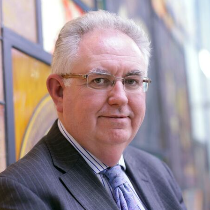 Sir Mark Caulfield, PhD, Professor & Director, Clinical Pharmacology, The William Harvey Research Institute, Queen Mary University of London; CEO, Barts Life Sciences
Sir Mark Caulfield, PhD, Professor & Director, Clinical Pharmacology, The William Harvey Research Institute, Queen Mary University of London; CEO, Barts Life Sciences
The 100,000 Genomes Project focused on rare disease, cancer,
and infection and demonstrated the potential of whole genomes to uplift diagnoses by 25% in rare disease, have a clinical utility for 25% of cancer patients, and discover 15 novel gene loci for severe COVID-19. Exploring of pharmacogenomics reveals
many of us have genetic variants which if paired with a drug may cause harm. To do this we created a new National Test Directory where we evaluated 300,000 tests upgraded 25% to new technologies, and 500,000 whole genomes are available for rare disease
and cancer care over the next 5 years. We have used this to transform the National Health Service with a new Genomic Medicine Service offering equitable access to 56 million people.
5:30 Precision Health: Closing the Information and Decision Gaps
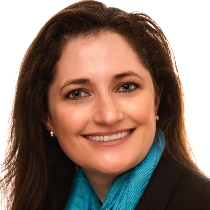 Jessica L. Mega, MD, MPH, Co-Founder and Chief Medical & Scientific Officer, Verily; Adjunct Professor, Stanford University School of Medicine
Jessica L. Mega, MD, MPH, Co-Founder and Chief Medical & Scientific Officer, Verily; Adjunct Professor, Stanford University School of Medicine
Genomic
insights have proven to be powerful, from providing a better interpretation of the pathobiology of disease to tailoring medications based on pharmacogenetics. At the same time, there has been a growing appreciation that a multitude of inputs are needed
to provide a comprehensive understanding of both the health of an individual and how it relates to the broader population. Accounting for (1) the highly complex interplay of biological, behavioral, environmental, and social systems, and (2) the changes
in the cadence of data collection from episodic to continuous will be critical to improving clinical outcomes. The scale of data, from gigabytes to terabytes per individual, necessitates an updated framework to collect, organize, and activate this
rich health information; recent advances in biomedical information systems and computation are making these activities possible. Additionally, tools to harness more comprehensive biological insights are being developed, and people are interacting
more directly with their health data, along with the support of researchers and clinicians. All these efforts to close the information and decision gaps will ultimately advance precision health.
6:00 Panel Discussion: Precision Health: Convergence of Genomics, Digital MedTech and Healthcare
Precision Health promises a much-needed shift from “sick-care” to “healthcare.” Driven by innovations in genomics,
medtech, and AI, precision health strategies can focus on prediction, prevention, and early detection for individualized health and wellness. The panel will discuss how genomics and digital health technologies can advance community-wide genetic screening
and early disease detection, patient monitoring and preventative health strategies, personalized lifestyle and wellness approaches, and precision health equity.
Moderator:
 Robert C. Green, MD, MPH, Professor and Director of G2P Program, Mass General Brigham, Broad Institute, Ariadne Labs and Harvard Medical School
Robert C. Green, MD, MPH, Professor and Director of G2P Program, Mass General Brigham, Broad Institute, Ariadne Labs and Harvard Medical School
Panelists:
 Sir Mark Caulfield, PhD, Professor & Director, Clinical Pharmacology, The William Harvey Research Institute, Queen Mary University of London; CEO, Barts Life Sciences
Sir Mark Caulfield, PhD, Professor & Director, Clinical Pharmacology, The William Harvey Research Institute, Queen Mary University of London; CEO, Barts Life Sciences
 Jessica L. Mega, MD, MPH, Co-Founder and Chief Medical & Scientific Officer, Verily; Adjunct Professor, Stanford University School of Medicine
Jessica L. Mega, MD, MPH, Co-Founder and Chief Medical & Scientific Officer, Verily; Adjunct Professor, Stanford University School of Medicine
 Lara Jehi, MD, Chief Research Information Officer, Professor, Neurology, Cleveland Clinic
Lara Jehi, MD, Chief Research Information Officer, Professor, Neurology, Cleveland Clinic
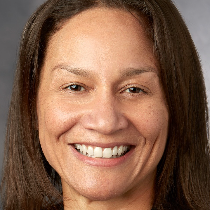 Megan Mahoney, MD, Clinical Professor, Primary Care & Population Health, Stanford University
Megan Mahoney, MD, Clinical Professor, Primary Care & Population Health, Stanford University
TUESDAY, FEBRUARY 22
1:00 pm Chairperson's Remarks
 Lisa M. Suennen, Lead/Senior Managing Director, Digital & Technology Group, Manatt Phelps & Phillips LLP
Lisa M. Suennen, Lead/Senior Managing Director, Digital & Technology Group, Manatt Phelps & Phillips LLP
1:05 Saliva DirectTM: From Open-Source PCR Test to National Laboratory Network Championing Equitable, Accessible Testing Solutions in the Pandemic and Beyond
 Anne Wyllie, PhD, SalivaDirect Principal Investigator, Research Scientist, Epidemiology of Microbial Diseases, Yale School of Public Health
Anne Wyllie, PhD, SalivaDirect Principal Investigator, Research Scientist, Epidemiology of Microbial Diseases, Yale School of Public Health
1:15 Innovating Diagnostics to End a Pandemic: The RADx Tech Experience
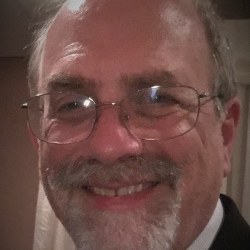 Steven Schachter, MD, Professor, Neurology, Harvard Medical School; Chief Academic Officer and RADx Chief, CIMIT
Steven Schachter, MD, Professor, Neurology, Harvard Medical School; Chief Academic Officer and RADx Chief, CIMIT
Rapid Acceleration of Diagnostics (RADx)
Tech is an NIH-funded program launched on April 29, 2020, to accelerate development, validation, and commercialization of innovative point-of-care and home-based tests, as well as improvements to clinical laboratory tests, that can directly detect
the virus that causes COVID-19 and its variants. After 15 months, the program generated 27 FDA Emergency Use Authorizations for COVID-19 diagnostic tests, including the first over-the-counter test for use at home without a prescription, and produced
500 million tests. RADx Tech has proven to be a model of academic-industry-government collaboration for translational medtech development.
1:45 Innovative Tests for COVID-19, Future Pandemics, and Potential use in Non-Pandemic Test Development
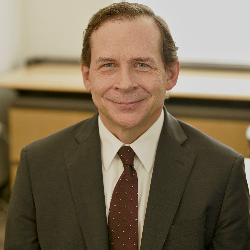 Timothy Stenzel, MD, PhD, Director, Office of In Vitro Diagnostics and Radiological Health, FDA
Timothy Stenzel, MD, PhD, Director, Office of In Vitro Diagnostics and Radiological Health, FDA
2:15 Panel Discussion: Investing in Precision Medicine: Trends in Diagnostics, HealthTech and Digital Health
Precision Medicine is driven by the innovation continuum spanning genomics and diagnostics, MedTech and HealthTech, AI
and Digital Health. The panel will explore investment opportunities and growth trends in the post-pandemic era, as well as the impact of precision medicine innovation on improving health outcomes and patient experience, managing healthcare costs,
and advancing health equity.
Moderator:
 Lisa M. Suennen, Lead/Senior Managing Director, Digital & Technology Group, Manatt Phelps & Phillips LLP
Lisa M. Suennen, Lead/Senior Managing Director, Digital & Technology Group, Manatt Phelps & Phillips LLP
Panelists:
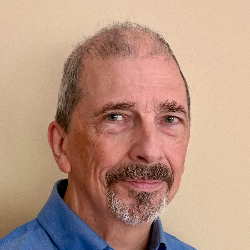 Tom Miller, Founder & Managing Partner, GreyBird Ventures, LLC
Tom Miller, Founder & Managing Partner, GreyBird Ventures, LLC
 Mara Aspinall, Managing Director, BlueStone Venture Partners, LLC
Mara Aspinall, Managing Director, BlueStone Venture Partners, LLC
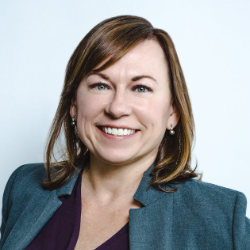 Jenny Rooke, PhD, Managing Director, Genoa Ventures
Jenny Rooke, PhD, Managing Director, Genoa Ventures
 Taha Jangda, Partner, HealthX Ventures
Taha Jangda, Partner, HealthX Ventures
 Michele Colucci, Co-Founder & Managing Partner, DigitalDx Ventures
Michele Colucci, Co-Founder & Managing Partner, DigitalDx Ventures
WEDNESDAY, FEBRUARY 23
8:05 am Chairperson's Remarks
 Edward Abrahams, PhD, President, Personalized Medicine Coalition
Edward Abrahams, PhD, President, Personalized Medicine Coalition
8:10 Personalized Healthcare in Big Pharma: A Perspective
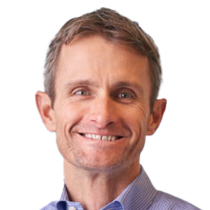 Jeffrey Venstrom, MD, Chief Medical Partner, Cross Portfolio, Genentech
Jeffrey Venstrom, MD, Chief Medical Partner, Cross Portfolio, Genentech
8:40 Increasing Access to Precision Medicine – The Next Generation of Companion Diagnostics
 Ruth E. March, PhD, Senior Vice President & Head, Precision Medicine & Biosamples, AstraZeneca
Ruth E. March, PhD, Senior Vice President & Head, Precision Medicine & Biosamples, AstraZeneca
Precision medicine uses diagnostic
tests to match the right drugs to patients most likely to respond. As science advances through the use of advanced analytics, artificial intelligence and integrated sources of biomarker data, we need a new generation of diagnostic tests. Following
the patient journey in different treatment settings offers opportunities to all patients to be able to gain access to appropriate diagnostic solutions.
9:10 Panel Discussion: Implementing Precision Medicine at Big Pharma
Over the past decade, precision medicine promised to impact drug development by targeting the right medicine to the right patient. The panel of pharma thought
leaders will discuss strategies to implement precision medicine in the drug discovery and development pipeline, including biomarker and companion diagnostic development, patient stratification, precision oncology advances, and emerging molecular tools
for disease characterization.
Moderator:
 Edward Abrahams, PhD, President, Personalized Medicine Coalition
Edward Abrahams, PhD, President, Personalized Medicine Coalition
Panelists:
 Jeffrey Venstrom, MD, Chief Medical Partner, Cross Portfolio, Genentech
Jeffrey Venstrom, MD, Chief Medical Partner, Cross Portfolio, Genentech
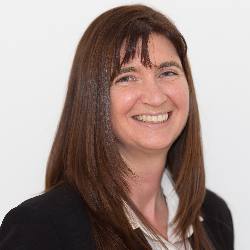 Maria C. M. Orr, PhD, Head, Precision Medicine, Biopharmaceuticals, AstraZeneca
Maria C. M. Orr, PhD, Head, Precision Medicine, Biopharmaceuticals, AstraZeneca
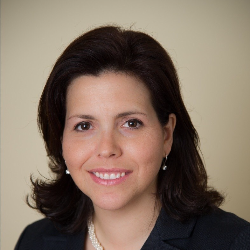 Marielena Mata, PhD, Senior Director and Diagnostic Lead, Oncology Program, Pfizer
Marielena Mata, PhD, Senior Director and Diagnostic Lead, Oncology Program, Pfizer
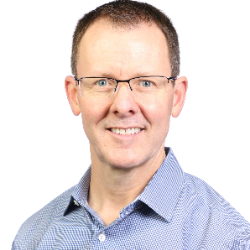 Christopher Conn, PhD, Director, Companion Diagnostics, AbbVie
Christopher Conn, PhD, Director, Companion Diagnostics, AbbVie
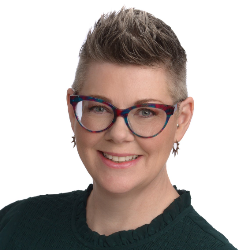 Andrea L. Stevens, PhD, Director, Precision Medicine Access Strategy, Janssen Pharmaceuticals, Inc.
Andrea L. Stevens, PhD, Director, Precision Medicine Access Strategy, Janssen Pharmaceuticals, Inc.